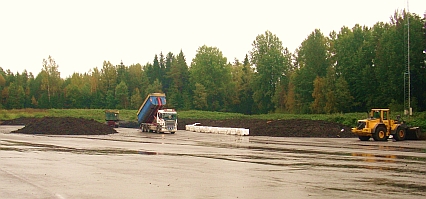BIOSLUDGE - Biological effects of sewage sludge
About this project
Project information
Project status
Completed
Contact
Research subject
Research environments
Sludge is the solid material remaining after wastewater or sewage treatment. It is produced from the anaerobic bioreactors where raw sewage is processed during the normal sewage treatment. The sludge is dewatered and then can be recycled as soil fertilizer for agriculture or as landfill material. The sludge can still contain toxic substances such as heavy metals, pharmaceuticals and bacterial contaminants that can be harmful to both humans and animals. The objective of this collaborative project is to characterize the bioactivity of sewage sludge in order to determine how sewage sludge can be used in a safe and efficient manner. The main focus will be on the biological responses to sewage sludge and sludge-conditioned soil to determine if the soil/sludge is harmful to organisms that either live in soil or may be exposed through leached water. We hope to develop methods to define what is "clean", determine the effects on biological systems including human cell, bacteria, C. elegans and zebrafish and finally to complete a risk assessment. The results from the studies will be used to develop improved control programs for sewage sludge use and risk assessment.

Photo: Henrik Tideström

